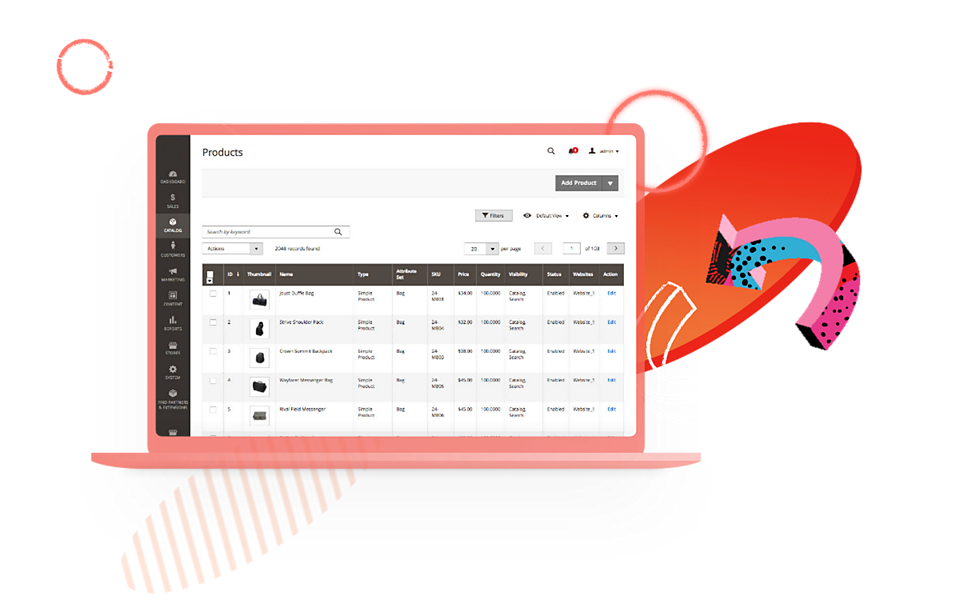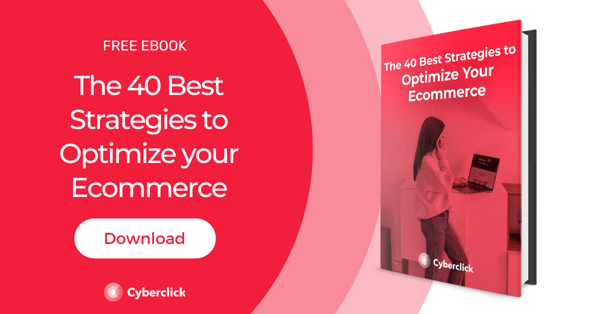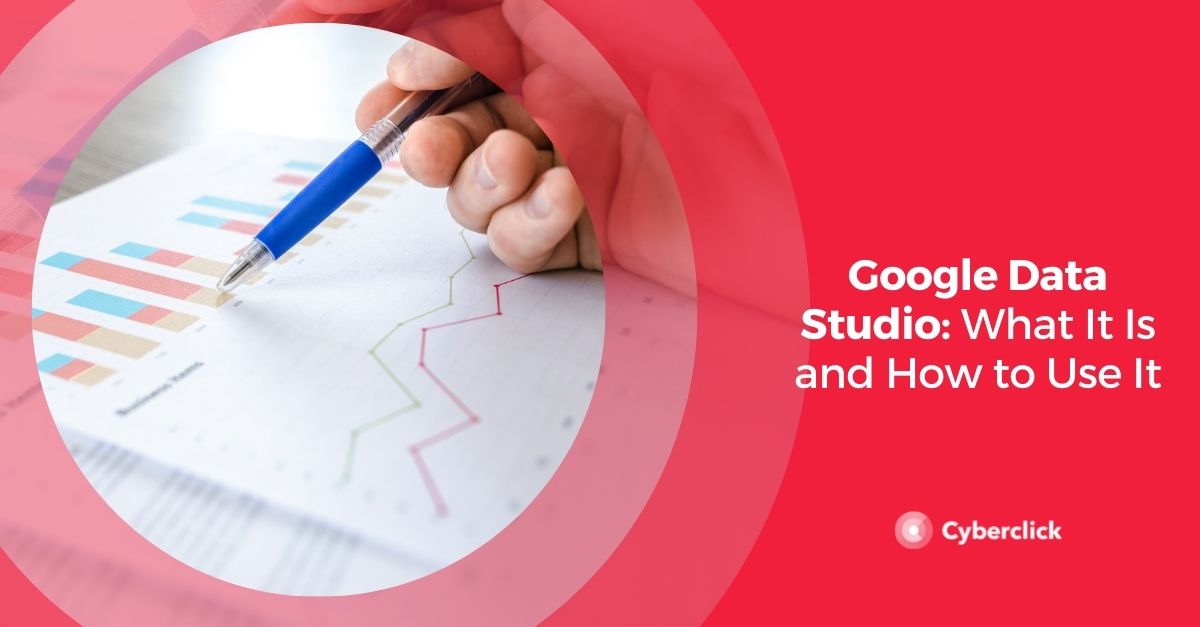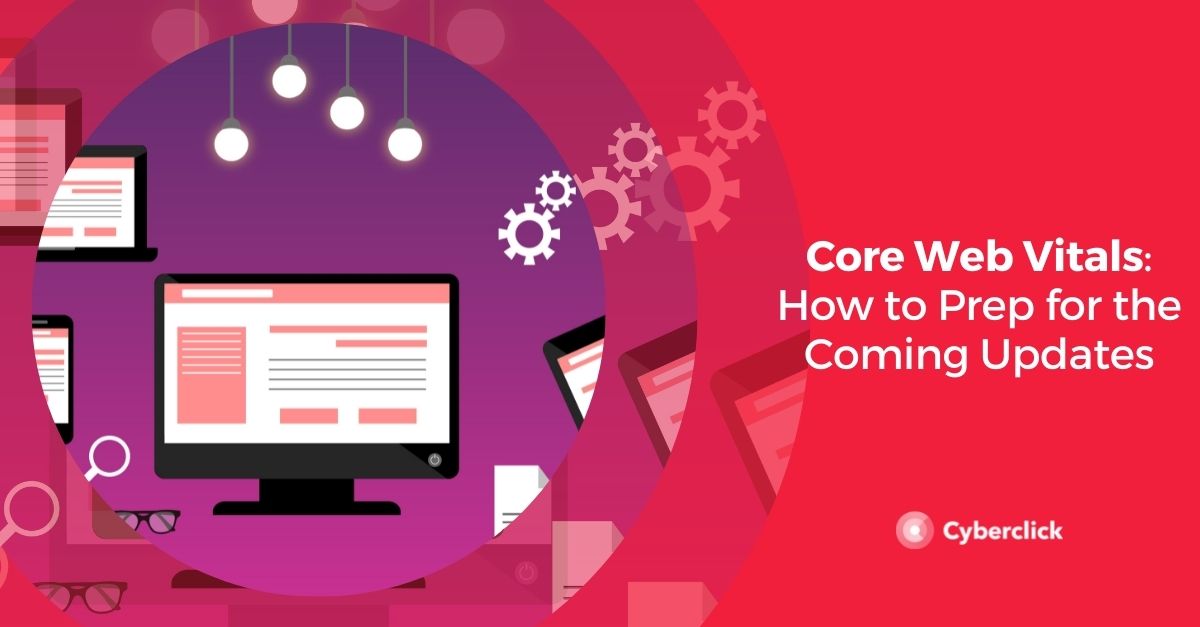As your ecommerce grows, you need to consider effective ways to organize your work processes. One very efficient way to do this is to use an ERP.
ERP is a growing industry and is estimated to have generated $47 billion in the last 5 years. There are ERPs of many different types, including solutions suitable for small, medium, and large companies that need to organize their marketing operations.
Read on to find out about the top ERP systems and how to find the right one for your ecommerce.
What Is an ERP System?
An ERP (enterprise resource planning) system is software that manages and automates a company's various administrative and operational processes.
ERP software helps companies manage different day-to-day tasks, such as handling inventory, setting prices, tracking sales, accounting, managing risks, or hiring personnel. In other words, it is a way to unify many different business processes into a single system.
ERP software systems are composed of different modules that manage a specific area of the company, such as human resources or logistics. All of these modules share the same database, so they can work in an integrated way. The ERP user can access all of this information to gain real-time visibility of all business processes, which improves decision-making.
The concept of ERP first emerged in the 1990s. Back then, most ERPs were installed on the customer's server and used their data centers. Today, these tools have evolved into 3 main types of ERPs:
- Local ERPs: These are more traditional and are implemented on the company's own computers and servers. Thus, the company completely controls all aspects of the system, but it requires local resources to manage the entire system.
- Cloud-based ERPs: Cloud solutions are marketed as a "software as a service" (SaaS) model so that the company can access the system from any computer connected to the Internet. This offers much more flexibility than local systems, but the downside is that the data is hosted outside the company.
- Hybrid ERPs: Hybrid models combine cloud and local ERPs to suit the particular needs of each company.
Advantages and Disadvantages of an ERP
Advantages of an ERP
-
Improved data management: By using a single unified solution, there is no need to manually enter information into a database, thus reducing the possibility of human error and inconsistencies.
-
Process automation: With an ERP, day-to-day business management becomes much easier, as the tool takes care of organizing workflows. This results in significant time and cost-savings for the company.
-
Access to information: ERPs eliminate the so-called "data silos" within the different departments. All relevant information is available at the moment it is needed.
-
Better analytics: Integrated business intelligence solutions allow you to report on your company from the ERP database, which helps you gain insight into the state of the company in real-time and improve internal processes.
-
Increased productivity and efficiency: By eliminating redundant tasks, automating processes, and improving analytics, ERPs enable you to manage your business much more efficiently and make optimal use of staff and resources.
Disadvantages of an ERP
-
Cost: Complete ERP solutions with many customization options come at a high cost and are therefore hard for small and medium-sized companies to implement. In addition, so-called "hidden costs" may appear after implementation, such as the need to upgrade hardware or software or to expand the initial project. Fortunately, low-cost off-the-shelf solutions specially designed for SMEs can be found on the market.
-
Implementation difficulties: Implementing an ERP solution implies changing the whole way your ecommerce works, so it requires training and time to adapt. In addition, in the case of local ERPs, you need to have the local hardware and infrastructure. Think of an ERP as a long-term investment, since once you get acquainted with it, you will be able to take advantage of all its benefits.
Which Companies Should Use an ERP?
The ERP market offers solutions suitable for all types of companies, from SMEs to large international companies. In addition, these systems are often divided into different customizable modules, so they can be adapted to very different work processes and industries.
In general, when a company starts to grow, it is best to implement an ERP solution to optimize processes from the beginning. Here are some signs that your company needs an ERP:
-
You and your team spend too much time on administrative and data entry tasks, and that puts off creative and strategic tasks.
-
You have many different applications to manage your business and they are not well synchronized with each other.
-
You don't track important metrics, such as customer satisfaction.
-
You use project management tools, but find that you have too many tasks on your to-do list.
-
You are working remotely and find it difficult to coordinate processes and equipment.
-
You find it difficult to accurately track inventory and pricing.
-
Your business performance figures are spread across different systems, making it difficult to gather all the information you need for reporting.
The 10 Best ERPs for Your Ecommerce
1. Magento
Magento is a free and open-source ERP tool, which makes it an excellent solution for getting started with your ecommerce. The system handles all business processes, including payroll and supplies, and adds new add-ons and extensions frequently. It also stands out for being easy to use.
2. Brightpearl
This ERP includes inventory management, order management, accounting, workflow management, and CRM solutions. It has a SaaS structure with different service levels, so it can be adapted to companies of different sizes and budgets. It also integrates seamlessly with other services like Slack.

3. Microsoft Dynamics 365
The Microsoft Dynamics suite is a comprehensive solution for your company, as it includes ERP, CRM, office automation, and business intelligence functions. With this software, you can have all your company's operational, financial, and customer data in a single system hosted in the cloud.
4. Skubana
Skubana is defined as "an all-in-one cloud-based solution". This ERP offers a very complete package of tools for your ecommerce, including operations automation, inventory and order management and forecasting, and operational analysis. It is also integrated with the most important platforms and solutions in the industry.
5. Sage 200
This solution is specially designed for companies between 10 and 200 employees. It has financial and commercial management functionalities, a CRM, and connected solutions such as Sage Catalog 2.0 or Sage DigitalDocs. It is a comprehensive solution to accompany SMEs in their growth process.

6. Oracle NetSuite
This ERP was founded in 1998 and is suitable for companies of all sizes and industries. It has a variety of cloud-based applications and runs on multiple different browsers. Its functionalities include billing, CRM, financials, inventory management, business intelligence, and integrated security.
7. Aquilon Software
Aquilon is an ERP designed for medium-sized companies and startups. It has 17 modules that manage aspects such as financial management, supply chain, manufacturing, and reporting. In addition, it can be used from any device connected to the Internet, making it easy to manage your ecommerce wherever you are.
8. Aqua eBS
A software that is aimed at small and medium-sized companies that integrates all areas of a company. It stands out for incorporating RPA (robotic process automation) technology to streamline workflows.


9. SAP Business One
This ERP includes all the tools necessary for small and medium-sized companies to manage their most important areas. The software collects critical business information and provides complete visibility into how the business is performing.

10. ECI Software Solutions
ECI offers cloud-based ERP for different business niches, such as manufacturing or equipment maintenance. It has different specific solutions for each of the sectors it works with and is designed for medium-sized companies.
Key Account Manager Engineer en Cyberclick. Experto en desarrollo de aplicaciones web e integraciones entre sistemas con más de 10 años de experiencia. Cuenta con una licenciatura en Matemáticas, Ciclo Formativo de Grado Superior en Desarrollo de Aplicaciones Informáticas y Ciclo Formativo de Grado Superior en Desarrollo de Aplicaciones Multiplataforma.
Key Account Manager Engineer at Cyberclick. Expert in web application development and system integrations with over 10 years of experience. He holds a degree in Mathematics, a Higher Degree in Computer Application Development, and a Higher Degree in Multiplatform Application Development.







Leave your comment and join the conversation